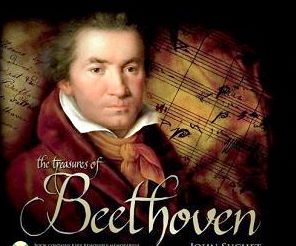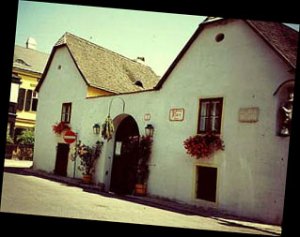
Beethovenís Heroic Battle
O god – grant me at least but one day of pure joy – it is so long since real joy echoed in my heart” … Ludwig Van Beethoven
 How many, facing the kind of ordeal faced by Beethoven, would have given up. But his perseverance in the face of tribulations changed the course of the history of music, in countless ways.
How many, facing the kind of ordeal faced by Beethoven, would have given up. But his perseverance in the face of tribulations changed the course of the history of music, in countless ways.
Born in Bonn, Germany, in 1770, Ludwig Van Beethoven burst on to the world’s musical stage with brilliance, flare, and charisma. He dazzled audiences and royalty, playing the piano with unmatched virtuosity. Even his early compositions demonstrated that he was a master.
But his world began to change when he realized that he gradually was losing his hearing. As he expressed in a letter written on June 1, 1802, he often felt frustration and desperation.
The depth of his emotions was expressed candidly in a “testament” written in Heiligenstadt, on October 6th, 1802. In this revealing document, discovered only after his death, he wrote, “Although born with a fiery and lively temperament . . . I soon had to cut myself off and live in solitude.
In the years to come, Beethoven more often he became characterized by courageous resolution to accept the challenge of fate. He managed to concentrate even more deeply on his compositions.” The results were works that advanced to new heights, such as his third Symphony, the Eroica symphony, and his philosophical string quartets.
Continuing to seek a solution for his hearing loss, he turned to inventor Johann Maelzel, who created an “ear trumpet,” which had marginal success. But it became more difficult for him to play in public, or conduct lessons.
Forced to retreat into this internal world of solitude, he was able to dive deeper into an internal world no one had probed before. As pianist Andras Schiff recently commented, “Beethoven, after the deterioration of his hearing, turned an obstacle into a virtue.” He “heard” music in new ways, and his music continued to change and deepen. Perhaps the pinnacle of this process was his Ninth Symphony.
As early as 1792, he had been thinking about setting to music the words in Frederick Schiller’s poem, “Ode to Joy.” Around 1817 began developing them further, thinking about creating a new symphony.
His focus became more intense around 1822, and he completed the symphony during the Autumn of 1823. The symphony’s most striking innovation is its use of chorus and solo voices in the finale. This was new, radical thinking.
The first performance of this Symphony took place in Vienna on May 7, 1824. Some felt that it was a failure. Some said he had “gone mad.” One reviewer said that the piece “lost its way.” Some felt it was too long. One writer complained that it was boring. But, overall, this legendary concert was a triumph. At the conclusion of the final movement, the crowd erupted in applause. But Beethoven heard nothing and one of the singers turned him around to see the overwhelming response.
Beethoven had done more than write a symphony. He changed the way people thought about music, about themselves … about art.
After the Ninth, no one could approach music the same.
We cannot image music today aside from his breakthroughs. His willingness to probe deep emotions, to create new forms and to challenge conventions.
Here we see a man who had risen above his nightmares. Who had adapted to the loss of his hearing. Who had worked through his misery. Who emerged in triumph. Who called on all peoples to celebrate in a spirit of joy and exaltation, with music of pure exhilaration.
Clearly, when we listen to his music we are somehow summoned before the creation of a heroic musical giant.
In many ways, it is ironic that Beethoven’s “Ode to Joy” melody from the Ninth Symphony has become the music for the hymn “Joyful, Joyful.” But perhaps his most enduring spiritual legacy is of a man who demonstrated the silent and yet heroic struggle with the adversities in life.
Sources: John E. Roos, BBC & Ludwig Van Beethoven’s website
with joy I hasten towards death – if it comes before I shall have had an opportunity to show all my artistic capacities it will still come too early for me despite my hard fate and I shall probably wish it had come later – but even then I am satisfied, will it not free me from my state of endless suffering? Come when thou will I shall meet thee bravely. – Farewell and do not wholly forget me when I am dead, I deserve this of you in having often in life thought of you how to make you happy, be so –
Heiglnstadt
October 6,1802 Ludwig Van Beethowen
VIEW VIDEO
http://ashraf62.wordpress.com/2012/01/13/beethovens-heroic-battle/

